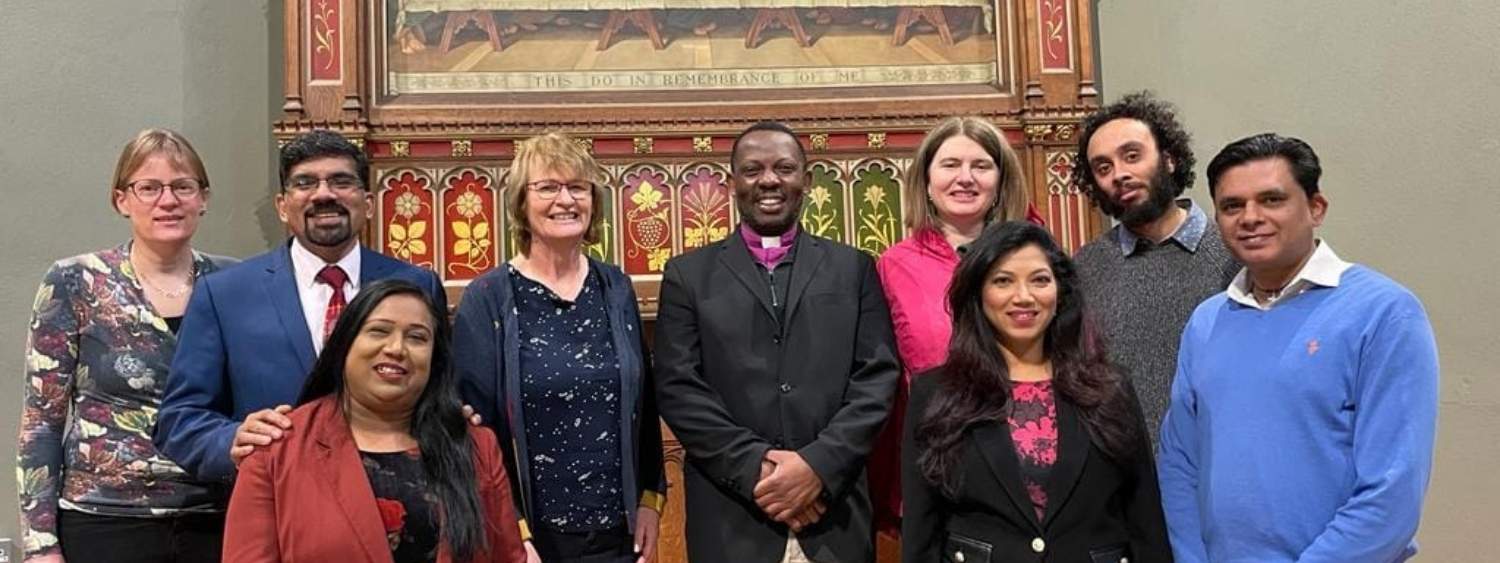In the centre of Slough, St Paul's Church brings together people from all cultures and ethnicities, including Indians, Pakistanis, Bangladeshis, Iranians, Kenyans, Nigerians, and Somalians.
It aims to be an intercultural worshipping community where all feel welcome and comfortable to worship together with their own identity.
The church is the resourcing hub for intercultural mission in the diocese, helping other churches begin and expand intercultural ministry and mission in their local contexts. As a church, St Paul’s have been involved in this area of mission for over 25 years but have only started to develop resources and training to share their expertise and experience in the past couple of years.
The Rt Revd Capt Dr Tim Wambunya, formerly a mission partner in Kenya, joined as vicar of St Paul’s just over a year ago and has been working with the staff team to create a more integrated congregation. This started with diversifying the leadership to reflect the culture and ethnicity of the congregation and context. As a result, the church now has various pastorates, including the PCC and lay leaders, representing different ethnic backgrounds.
Breaking barriers
Markus, the Hub Operations Manager, shares why this is important:
"A church should represent its parish, and that's what we do here at St Paul's. More than 50% of the population of Slough are UKME, so we reflect that in our diverse congregation who are from a wide variety of cultural and ethnic backgrounds."
“We want people to come into the church and see people like them in the leadership, people who look like them and have an understanding of their culture and background. This helps people feel like they can belong, and it breaks down some of the barriers for UKME people in the church where they might not always feel represented and understood.”
Having your say
As the diocesan resourcing hub for intercultural mission, the aim is for other churches around different areas of the diocese to learn from the work at St Paul’s and develop their patterns of intercultural mission to reach those from all backgrounds in their communities.
Tim shares how intercultural ministry has developed at St Paul’s:
“We are fully integrating all cultures, ethnicities and backgrounds. Being personable, relatable, and engaging in our ministry with an outward focus means no one is excluded. By immersing ourselves in the influence of other cultures and backgrounds, we can learn from one another and experience Jesus in new ways."
“God is building an intercultural global church and views each of us as equal, no one ethnicity or culture dominates, and this includes the way we lead our churches. So, for example, at St Paul's, all the ethnicities and cultures represented in our congregation are at the same level, and everyone has a say in what is going on.”
Finding balance
One of the ways the church seeks to integrate the different cultures is through spending time together in fellowship – worshipping, praying and eating together. Although services are in English, they plan to start several small pastoral and fellowship groups in other languages to help people feel that their languages and cultures are valued and there is space for them in the church. These include Urdu, Farsi, Swahili, Hindu and Punjabi groups, and will be led by other members of the congregation and leadership team.
Markus encourages those who are thinking about starting intercultural mission and ministry work at their church:
“We recognise that doing intercultural ministry in our congregations and communities isn't always easy, and there are challenges, particularly around finding a balance between the different cultures. But the fruits of intercultural church are beautiful and a true reflection of God’s Kingdom.
"We see children of all ethnicities, cultures and backgrounds playing together and people worshipping with those who are different from themselves, all finding their common identity in Christ.”
Resourcing rural and urban mission
Growing new congregations is for every type of parish tradition, size and location within the Diocese of Oxford. As a diocese with a rich diversity of rural parishes and expanding urban centres, we recognise the importance of supporting churches in both these settings to meet the different challenges they face and bring God's kingdom to all people.
Our vision is that every parish will actively consider and engage in growing new congregations in the Diocese of Oxford, to promote a truly mixed ecclesial ecology and to nurture diverse worshipping communities

